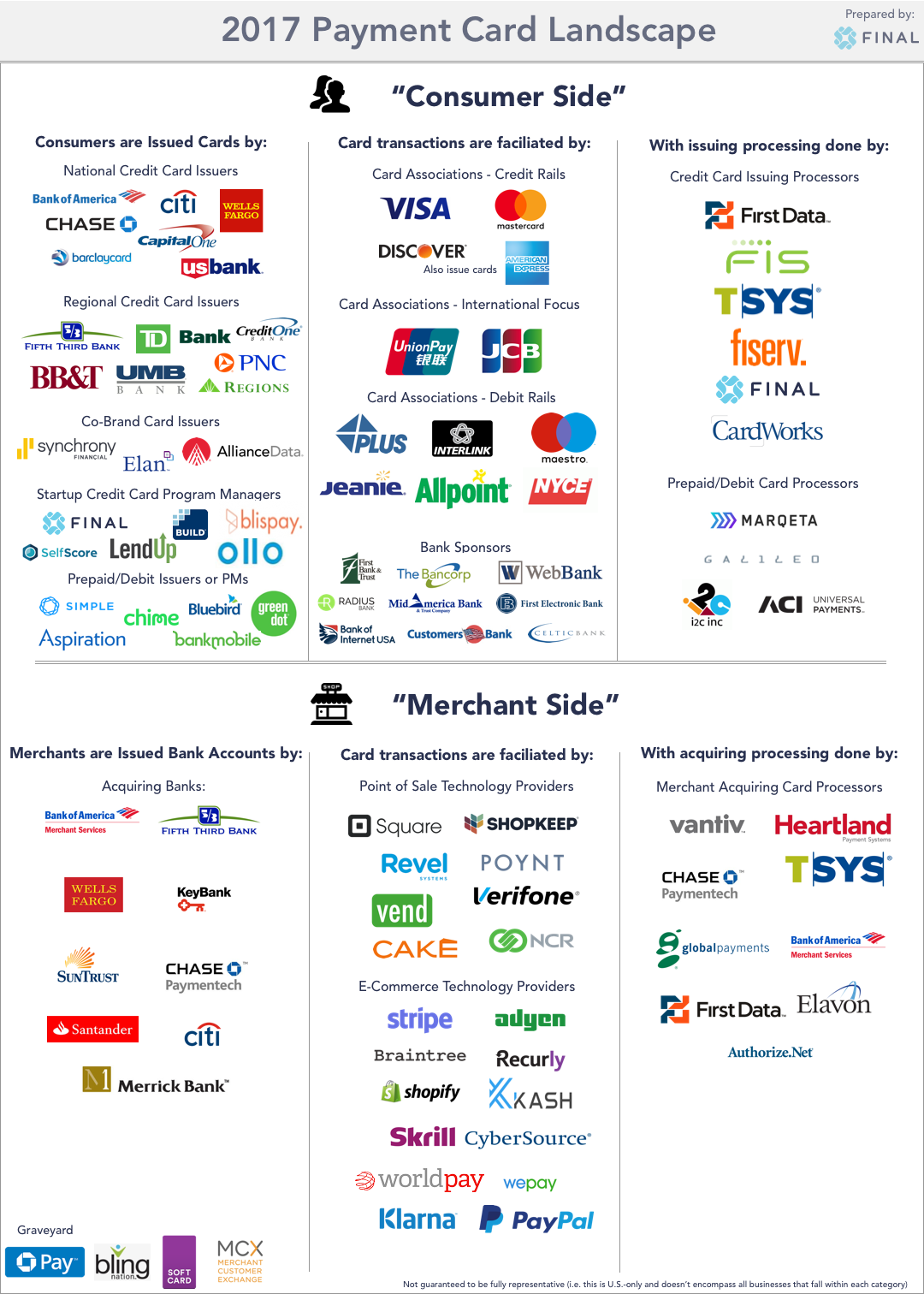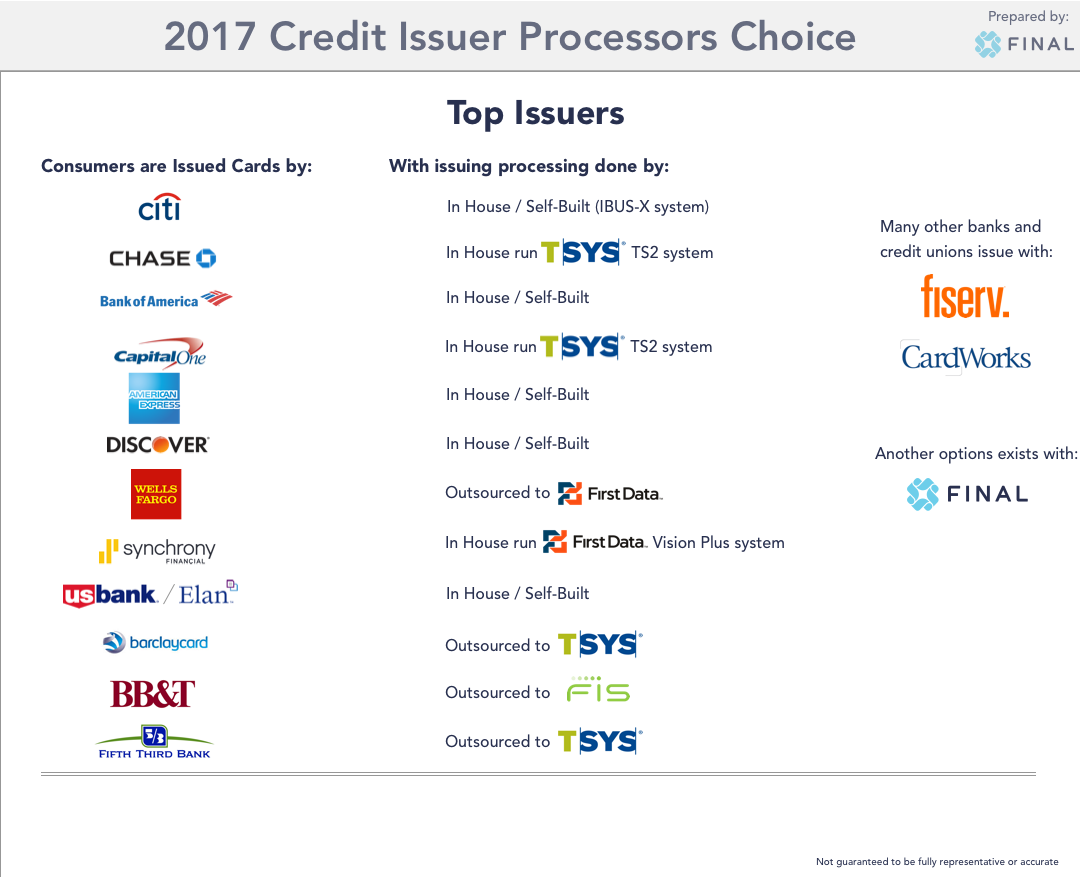2017 Payment Card Landscape
The card payments ecosystem is massive and shows no signs of slowing down as local and global markets become ever more connected.
Representing hundreds of verticals, thousands of companies with valuations that total billions of dollars facilitate trillions of dollars in transactions annually. Below is our 2017 payment card landscape, representing some of the key players in this slice of our complex industry:

These companies do everything from international commerce enablement to small business credit cards and point-of-sale software to the banking cores that support all of them. We can’t pretend that this provides a full picture of the card landscape - and nowhere near the full payments space - but wanted to highlight the world in which Final lives for family, investors, industry friends, and other curious readers. As one of our advisors likes to say, this is the only $6 trillion dollar industry where nothing is written down - so we’re putting pen to paper bit by bit.
While much is known in general about payment cards and this ecosystem, little is known about how reliant card issuers in the U.S. are on third party technologies. And moreover, that there are very few of these issuing processor technologies that have compliant credit operations in the states.
With that in mind, let’s get specific - really specific - for a moment.
Credit card issuers - as seen above - are mainly banks that offer credit cards to consumers. Issuing processors on the other hand are underlying technology and service providers which help power the cards that issuers offer.
A typical processor offers many of the following services:
- White-label web and mobile applications
- An origination engine that collects consumer information, pulls credit bureaus and makes yes/no decision on account opening
- Card printing and shipping
- Transaction fraud scoring
- Authorization/Clearing functionality + network settlement
- Disputes and chargebacks interfaces
- Payments acceptance (ACH / paper checks)
- Customer support
- Portfolio reporting
Card issuers are able to choose which of these services to avail themselves of, and all issuers either 1) outsource some/all operations to a 3rd party processor 2) license the processor’s technology and run it in-house or 3) build a custom version based on the third party setup. The former is especially true for smaller card issuers without the resources to either license tech and run services in-house or to build their own proprietary solution.
To illustrate this, let’s take a look at some of the top credit card issuers:

What does this mean?
Every credit card issuing bank in the U.S. - from the biggest of the megas to the smallest of credit unions - uses either: one of those few credit card processors, software licensed from one of those few credit card processors and then modified for in-house use or in-house/proprietary software, often based on the same legacy technology.
Unfortunately for these issuers, most systems used are COBOL-based and require mainframe-era technology (who’s familiar with EBCDIC encoding?). As issuers look to upgrade their card products, including innovation outside of simple rewards changes, they continue to see product and design as attractive avenues. Changes aplenty can be made to web and mobile apps, and even the middle layer of APIs that power those apps, but being beholden to older backend processor configurations continues to plague these issuers.
From a consumer’s perspective, this often manifests itself in frustration that customer experience with cards can seem stuck in the 90s, without true innovation outside of rewards and pricing.
For all the money that credit card issuers make, you’d think more could be done to cater to you.
So, the next time you wonder why your card issuer hasn’t evolved much, a good portion of that may be due to this one little-known truth.
One parting note for issuers and other non-bank companies looking to issue their own branded credit cards - Final exists as another option. We have a full issuing-processing platform that can offer the turnkey services listed above, built on modern (non-COBOL) core technologies.
Special thanks to Kaz Nejatian at withkash.com for proofreading and dropping knowledge on this blog post.